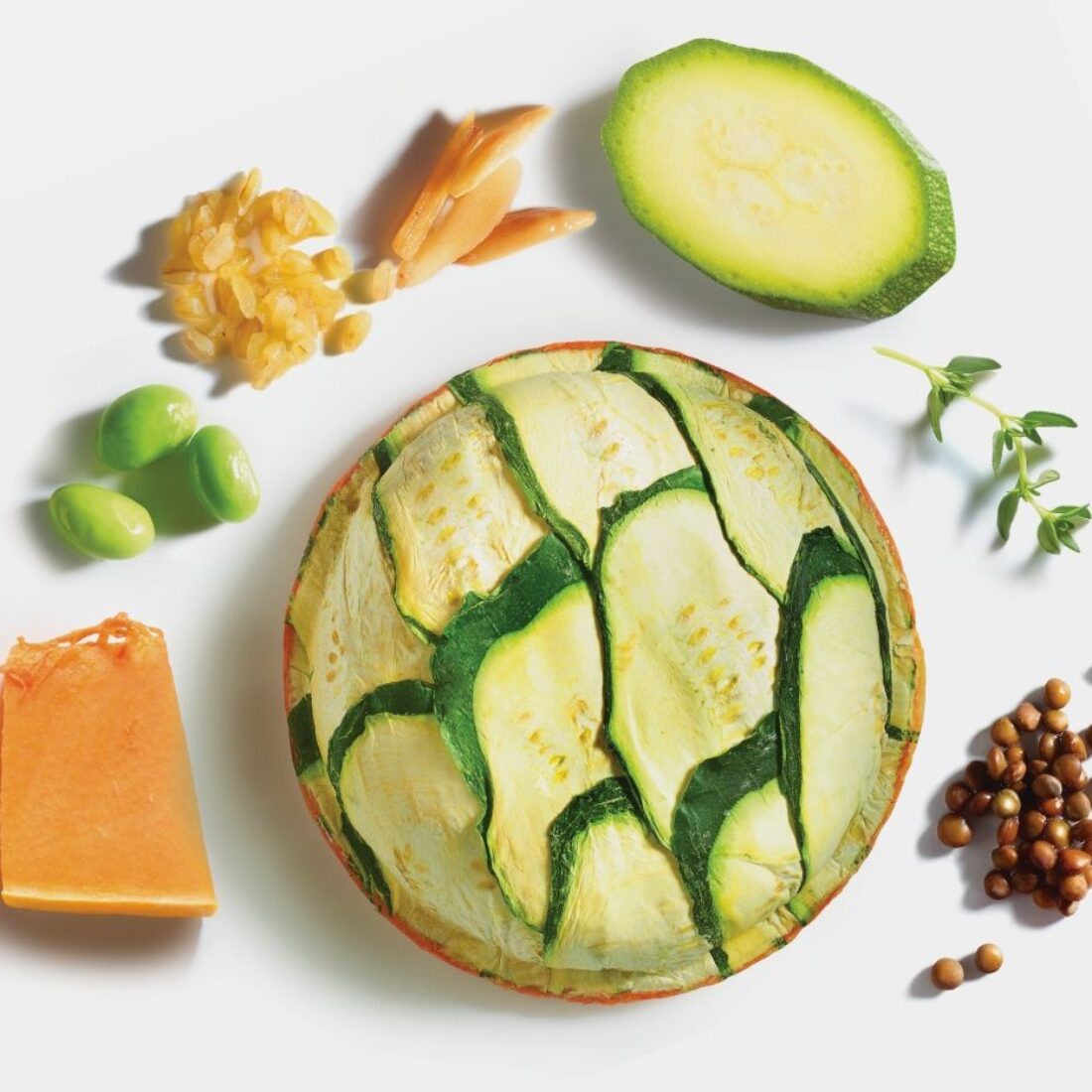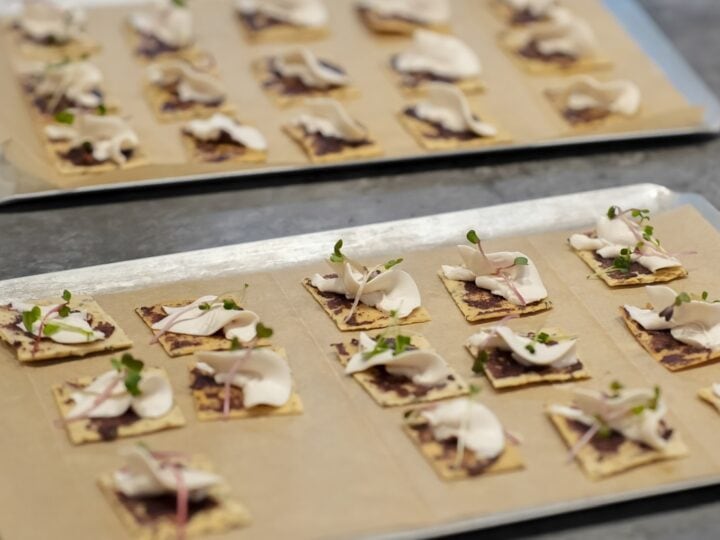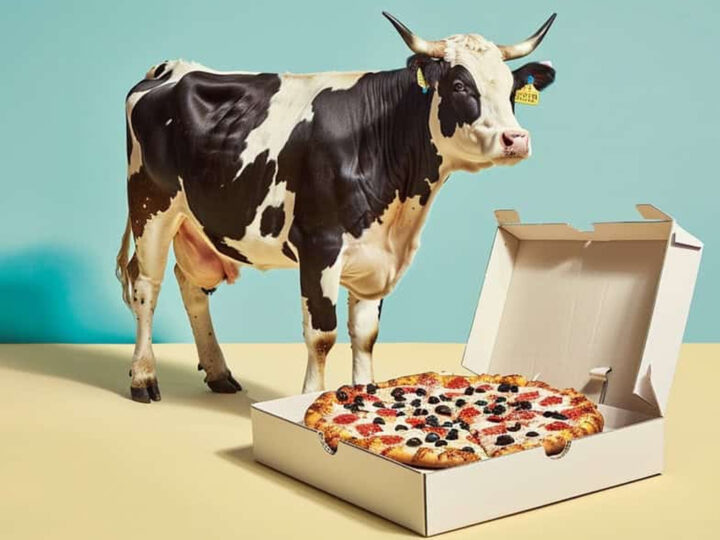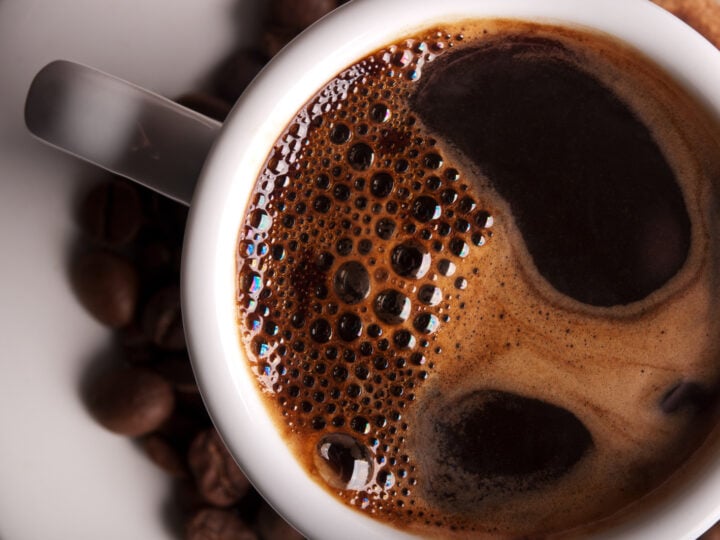An oddly shaped cucumber, no matter how fresh, doesn’t stand much chance of getting sold.
Not because it would taste bad but because, as first century Roman gourmand Apicius wisely observed, “We eat first with our eyes.”
Western consumers are so turned off by blemished produce that as much as six billion pounds of fruit and veggies go unharvested or unsold in the United States every year mainly for aesthetic reasons, according to the Ugly Produce is Beautiful campaign.
Two Israeli industrial design students, Esti Brantz and Meydan Levy, were disturbed to see the quantity of imperfect-looking produce rejected by shoppers at Jerusalem’s open-air Machane Yehuda market.
Brantz and Levy began buying these unattractive vegetables from the market’s vendors and spent two years developing an attractive way to present them to mainstream consumers.
Their efforts led them to launch a food-tech startup, Anina Culinary Art.
Anina now offers five varieties of all-natural, ready-to-heat “meals-in-a-pod” artfully composed from visually flawed produce.
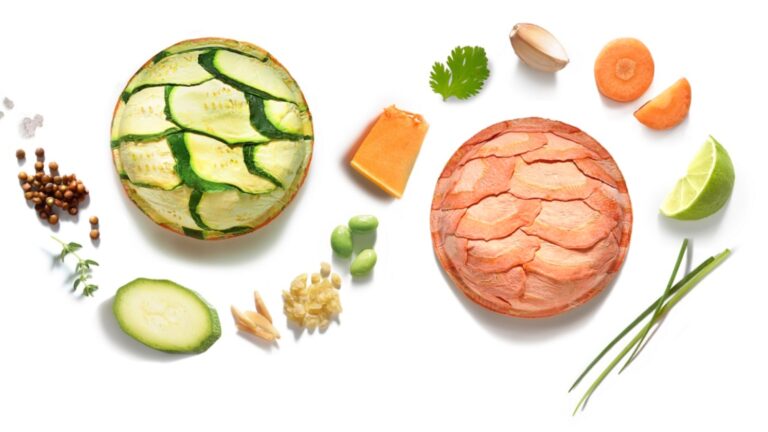
“We buy leftover produce directly from farmers,” explains Brantz. “This provides them income for vegetables they usually have to discard.”
Every single-serving pod contains two full cups of vegetables — 40 percent of an adult’s daily nutritional requirements — for a fast, nutritious stovetop or microwave meal to make at work or at home.
“We don’t care if a tomato has a nose or a zucchini has a funny curve,” says CEO and cofounder Anat Nathan. “We care about how the ingredients taste, about their nutrition and freshness.”
Putting the art in culinary art
There are niche businesses, especially in the United States, that sell exclusively ugly produce direct to waste-conscious consumers.
Brantz and Levy didn’t find anyone using these vegetables to create ready meals. They used techniques from the art world to invent pretty pods of vegetable “sheets” made from unmarketable produce, says Nathan.
“Vegetable sheets are the heart of our technology. They’re strong and flexible and can be filled and molded in a novel process,” says Nathan, a culinary school graduate with more than 20 years of marketing and business management experience at food companies including Nestlè and Tnuva.
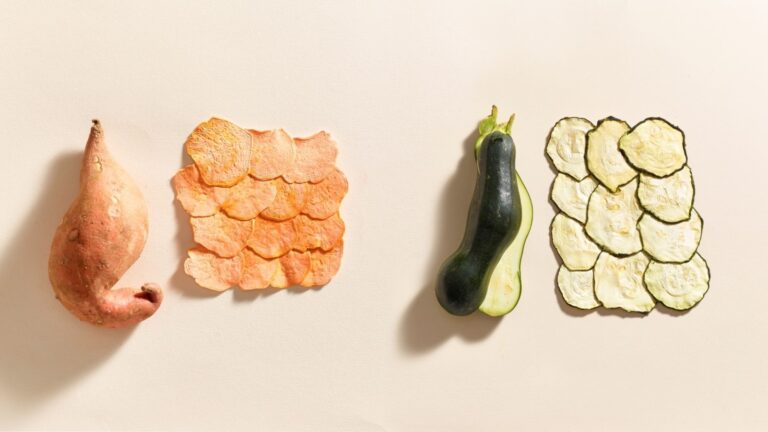
“We produce these vegetable sheets with minimal processing, preserving the flavors, aromas, colors and textures of the original vegetable,” adds Mor Wilk, VP of R&D for Anina.
Each pod provides a plant-based meal replete with protein and fiber, and free from colorants or preservatives. The outer shell is a layer of dried vegetables or fruits, while the inner core contains a range of natural ingredients such as lentils and rice.
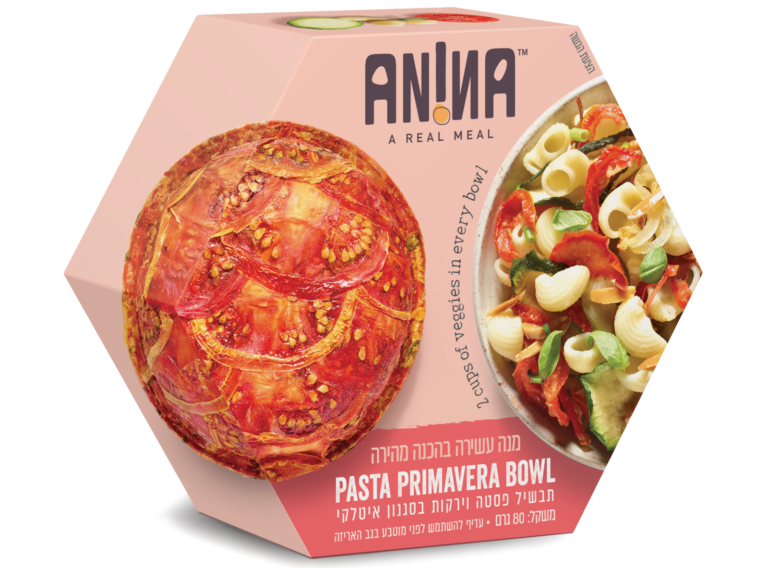
The varieties now sold in Israel online and in some specialty shops include Pasta Primavera Bowl, Mediterranean Bowl, Vietnamese Bowl, Mixed Mushroom Bowl, and Quinoa & Beet Bowl.
I sampled the tasty Pasta Primavera Bowl. It contained mostly dried vegetables (zucchini, tomatoes, yellow pepper, fried onion, eggplant, garlic and parsley) plus pasta and natural seasonings. The package had both kosher and Vegan Friendly certifications.
Heading to US market
Founded in June 2020, Anina has raised $3.3 million from the Strauss Group’s The Kitchen FoodTech Hub, Unovis, Unorthodox Ventures, AgFunder, Words Create and the Israeli Innovation Authority. The company is based in Rishon LeZion.
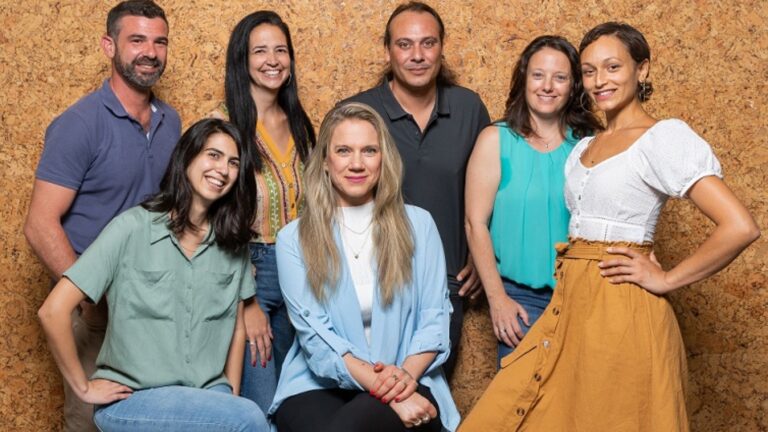
“We are focusing on going to the US market and Singapore and Spain, with great partners who know the market and consumers well,” says Nathan.
“We are looking to partner with additional leaders in other global markets. Food corporates today understand that innovation comes from startups.”
In the United States, Anina conducted consumer research, demos and surveys, and did a culinary analysis with a US chef.
“We’re changing the way we eat,” adds Natan. “And we’re shaping the future for a meaningful culinary consumer experience. The Anina meal capsule also addresses today’s fast-paced lifestyle, which too often forces consumers to compromise on the quality of the food they eat.”
For more information, click here.




